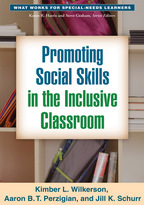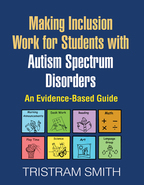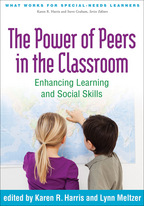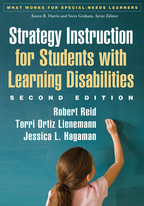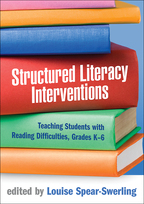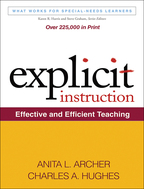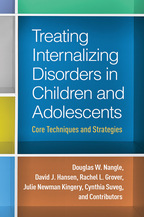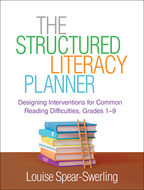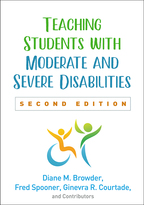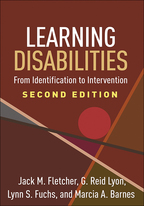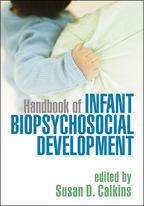Promoting Social Skills in the Inclusive Classroom
Kimber L. Wilkerson, Aaron B. T. Perzigian, and Jill K. Schurr
Paperbacke-bookprint + e-book
Paperback
orderOctober 25, 2013
ISBN 9781462511488
Price: $36.00190 Pages
Size: 7" x 10"
The reproducible materials can be downloaded and printed in PDF format.
“This book is an important source of information for teachers in the current school system, particularly those educating in inclusive classroom settings….Through this book’s discussion of the various evidence-based intervention plans and strategies…Wilkerson and colleagues demonstrate the importance of promoting social competence on both the students’ academic achievement as well as their long-term adult outcomes. This makes it important for all educators to take the time to read this book and be aware of and knowledgeable about the different intervention, curriculum, and teaching strategies they can use to increase their students’ social competence to, in turn, promote peer and teacher acceptance or approval, school attachment, and ultimately school and post-school success….It is particularly important for teachers in inclusive classrooms to read this book because the evidence-based strategies and tools discussed have proved to be especially successful at improving the social, emotional, behavioral, and academic outcomes of students with disabilities.”

—Journal of Youth and Adolescence
“I found this book to have great potential for use in schools. Accessible and well organized, it provides essential content to help educators and school psychologists promote students' social skills. Strong ideas are presented for conceptualizing and addressing social competence with the majority of students, small groups, and the few students who need individualized attention. This book will serve as an ideal required text for my yearly graduate course in social skills instruction.”

—Douglas Cheney, PhD, College of Education, University of Washington
“This timely book addresses the often-overlooked importance of social competence in the inclusive classroom, and includes a comprehensive review of relevant research. A highlight of the work is an excellent chapter about capitalizing on the power of peers. The authors show how creating a socially rich classroom environment can improve achievement for all students. The book artfully moves from the classroom level to the level of the individual student, and carefully ties in strategies for individual skills assessment and progress monitoring.”

—Julie Causton, PhD, Inclusive and Special Education Program, Syracuse University
“An excellent resource. Based on a strong theoretical foundation that explains how and why social competence matters in the classroom, this book provides practical, evidence-based guidelines for helping students with and without disabilities to develop social skills and competencies. The authors present a broad range of assessment techniques, along with strategies for schoolwide, classroom-level, and individualized prevention, intervention, and instruction. This is an invaluable book for elementary educators who work in inclusive classrooms, as well as preservice teachers and practitioners who wish to do so.”

—Kathryn Wentzel, PhD, Department of Human Development, University of Maryland, College Park
—Journal of Youth and Adolescence
“I found this book to have great potential for use in schools. Accessible and well organized, it provides essential content to help educators and school psychologists promote students' social skills. Strong ideas are presented for conceptualizing and addressing social competence with the majority of students, small groups, and the few students who need individualized attention. This book will serve as an ideal required text for my yearly graduate course in social skills instruction.”
—Douglas Cheney, PhD, College of Education, University of Washington
“This timely book addresses the often-overlooked importance of social competence in the inclusive classroom, and includes a comprehensive review of relevant research. A highlight of the work is an excellent chapter about capitalizing on the power of peers. The authors show how creating a socially rich classroom environment can improve achievement for all students. The book artfully moves from the classroom level to the level of the individual student, and carefully ties in strategies for individual skills assessment and progress monitoring.”
—Julie Causton, PhD, Inclusive and Special Education Program, Syracuse University
“An excellent resource. Based on a strong theoretical foundation that explains how and why social competence matters in the classroom, this book provides practical, evidence-based guidelines for helping students with and without disabilities to develop social skills and competencies. The authors present a broad range of assessment techniques, along with strategies for schoolwide, classroom-level, and individualized prevention, intervention, and instruction. This is an invaluable book for elementary educators who work in inclusive classrooms, as well as preservice teachers and practitioners who wish to do so.”
—Kathryn Wentzel, PhD, Department of Human Development, University of Maryland, College Park

